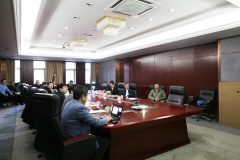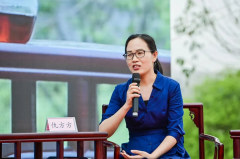农业部办公厅关于印发公益性行业农业科学研究
相关单位:
为贯彻落实《国家中长期科学技术发展规划纲要(2006-2020年)》和《农业科技发展规划纲要(2006-2020年)》,规范和加强科研专项资金管理公益性行业(农业),按照财政部、科技部《公益性行业科研专项资金管理试行办法》,中央财政项目管理我们根据农业行业科研特点,制定了“公益性行业(农业)科研专项资金”。 现将《管理实施细则》印发给你们,请遵照执行。
农业部办公厅
2010 年 7 月 15 日
公益性行业(农业)科研专项资金管理实施细则
第一章 一般规定
第一条 为贯彻落实《国家中长期科学技术发展规划纲要(2006-2020年)》和《农业科学技术发展规划纲要(2006-2020年)》,规范和加强公益性产业(农业)科技进步。根据财政部、农业部《公益性行业科研专项资金管理试行办法》,制定农业产业科研专项资金管理办法。科技、中央财政项目资金管理、国有资产管理,并结合农业产业科研特点。 本实施细则。
第二条 农业行业科研项目围绕农业部门职责任务和农业发展实际需要,重点开展应急、培育、基础科研工作。 支持范围包括:
(一)农业应用基础研究和基础工作;
(二)重大农业公益技术初步研究;
(三)农业实用技术研究开发;
(四)农业行业国家标准和重要技术标准研究;
(五)农业检验、检验(监测)技术研究;
(六)农业和农村经济发展应急技术研究。
第三条 农业科研专项资金的管理和使用原则:
(一)需求导向,突出重点。 农业产业科研项目面向产业、产品和产业发展需求,与国家其他农业科技计划衔接。 重点支持项目,目标是形成主导品种(产品、设备)、主要技术、工艺规范、决策支持方案。 专项项目下只设置项目层级,不细分项目,避免专项资金分散使用。
(二)明确权责,规范管理。 农业产业科研专项管理各方权利义务明确,各负其责。 坚持政府决策与专家咨询相结合,重点吸收现代农业产业技术体系、行业学会(协会)、推广部门、学术团体、农业产业化龙头企业等力量。 听取农民专业合作组织的意见,实行决策、执行、监督相互独立、相互制约的管理机制。
(三)科学安排、整合协调。 严格按照专项资金支持目标,科学合理编制和安排项目预算,加强农业科技资源的统筹协调和有效整合。
(四)专款专用并跟踪效果。 严格按照国家有关财务制度规定,农业产业科研专项资金纳入单位统一财务管理、单独核算,确保专项资金专款专用、注重结果、跟踪有效。建立机制。
第四条 根据农业行业专项科研项目的特点,项目承担单位一般通过择优委托或招标的方式确定。
第五条 农业部以外单位牵头承担农业产业科研专项资金的比例一般不低于农业产业科研专项资金的50%。
第六条 农业科研项目实行民主、专业、透明管理,并接受社会监督。
第二章 组织管理
第七条 农业部财政司、科技教育司和相关行业司局按照职责分工,共同负责农业行业科研专项的组织实施和监督管理。劳动。
第八条 财务部的主要职责是:
(一)会同科技教育部制定专项资金管理制度;
(二)会同科技教育厅组织编制、审查和应用项目总预算、年度预算和实施方案;
(三)根据财政部预算批准,下达专项资金总预算和年度预算;
(四)参与组织监督检查、年度考核、绩效考核、工程验收等工作,具体组织财务验收工作;
(五)本规则规定的其他职责。
第九条 科学技术教育司的主要职责是:
(一)按照有关规定成立农业产业科研专项管理咨询委员会(以下简称委员会),会同行业厅局组成行业咨询专家组;
(二)牵头制定全国农业产业科技发展规划;
(三)负责收集技术要求,建立技术要求数据库;
(四)组织替代项目前期研究和评估;
(五)提出项目建议书,会同有关行业部门和有关学术团体选定项目承担单位和首席专家,组织编制项目建议书,配合科技部协调立项项目;
(六)配合财务部组织项目总预算、年度预算、实施方案的编制、审核和运用,具体组织项目实施方案的审核;
(七)与项目承担单位签订项目任务书,协调处理项目实施中的重大问题,会同财务部门、行业部门组织监督检查、年度评价、项目验收、绩效评价等工作局。
(八)本规则规定的其他职责。
第十条 有关行业司、局的主要职责是:
(一)结合行业发展规划,制定行业科技规划;
(二)提出行业的技术需求和项目重点建议;
(三)审查本行业拟建项目的实施计划;
(四)负责行业咨询专家组的日常工作,监督行业相关项目的实施;
(五)参与行业相关项目的监督检查、年度评价、工程验收、绩效评价等;
(六)组织农业行业实用技术和专项科研项目科技成果的推广应用;
(七)本规则规定的其他职责。
第十一条 委员会的主要职责是:
(一)咨询论证农业产业科技发展规划;
(二)审查年度替代项目和项目建议书;
(三)关于如何选择项目承担单位的建议;
(4)对项目实施全过程进行咨询和评估。
第十二条 行业咨询专家组的主要职责是:
(一)跟踪了解项目实施情况,定期提交咨询工作报告;
(2)针对项目实施中的问题,向农业部提供管理咨询意见和建议;
(三)受农业部委托参加监督检查、年度考核、项目验收、绩效评价等;
(四)承办农业部委托的其他相关任务。
第十三条 项目承担单位按照项目实施职责范围分为主承担单位和配合单位。 第一责任单位履行本单位承担的具体任务时,视为履行配合单位职责。
第十四条 第一承办单位的主要职责是:
(一)牵头编制项目总预算、年度预算、实施计划和项目任务书;
(二)根据签署的项目任务书组织项目实施,按照有关规定管理项目资金,监督约定的自筹资金及其他配套条件的落实;
(三)与合作单位签订详细任务书,明确项目实施过程中的任务分工、年度计划、知识产权归属和成果;
(四)牵头组织配合有关部门开展监督检查、年度评价、项目验收和绩效评价,并根据需要组织对协作单位的定期评价。
第十五条 协作单位的主要职责是:
(一)按要求编制总预算、年度预算和本单位承担的具体任务的详细任务书;
(二)按照签署的详细任务说明书开展工作,按照有关规定使用项目资金,落实单位承诺的自筹资金及其他配套条件;
(三)配合有关部门或第一责任单位开展监督检查、年度考核、项目验收、绩效评价等工作。
第三章 立项
第十六条 要求收集。 根据农业科技发展规划,科教厅会同相关行业厅局、现代农业产业技术体系、行业学会(协会)等,从科技部收集农业生产技术需求用户并建立技术需求数据库。
第 17 条浓缩了替代项目的建议。 科技教育厅会同相关行业司局组织专家对收集到的技术需求进行梳理、分析和评估,制定替代项目建议。
第十八条 确定替代项目。 科技教育厅将替代项目建议书提交委员会审查,由委员会确定年度替代项目并提出替代项目第一责任单位和首席专家的产生办法。
第十九条 替代项目第一责任单位和首席专家的选定。 根据委员会审查意见,科技教育厅会同有关行业部门、现代农业产业技术体系、行业学会(协会)对替代项目进行调整,并按重要性、紧急程度进行排序,选择确定替代项目的第一责任单位和主要负责人。 专家。
第二十条提出项目建议书。 科技教育司组织选定的第一责任单位编制项目建议书,报委员会审查并经财政部门会签后,报科技部审查。
第二十一条 科技教育司根据科学技术部的审查意见,委托项目调整委员会确定拟安排的项目,并会同财政部门组织相应的项目承担各单位编制专项资金总预算和项目实施方案。
第二十二条 财政部门会同科技教育部门组织对项目总预算和项目实施方案的审查,并按优先顺序报财政部审批。经农业部批准文件。 项目总预算审核与项目实施方案审核可结合起来,确保预算编制与项目目标、研究任务、技术路线相匹配。
第二十三条 经财政部批准的项目,由科技教育司、财政司以农业部、财政厅文件形式正式下达立项通知书和项目总预算。科学技术教育部与第一承担单位签署项目任务书; 第二条 责任单位与配合单位签订详细任务书。
第二十四条 财政部门会同科技教育部门根据部门预算编制要求和部门预算“二次报送”期间组织项目承担单位编制并报送年度项目预算。批准项目总预算,并根据财政部审查部门预算编制项目年度预算。 批准将以农业部文件的形式下达,正式下达该项目的年度预算。
第二十五条 项目承担单位应当具备下列条件:
(一)一般为在中国大陆具有独立法人资格的科研院所、高等院校以及内资或内资控股企业;
(二)具有项目实施所需的科研设施,优先支持国家、省级重点实验室、工程(技术)中心、作物改良中心等建设单位;
(三)具有较强的研发优势,拥有相关领域国内知名学科带头人和相对稳定的学术团队;
(四)具有丰富的项目组织和管理经验,曾主持过国家、省部级相关研究项目(课题)的单位优先;
(五)每个项目的项目承担单位(含第一承担单位和合作单位)原则上不超过8家。
第二十六条 项目首席专家应当具备下列条件:
(一)申请人年龄原则上不超过55周岁,院士原则上不超过65周岁。 具有高级以上专业技术职称,有固定工作单位(原则上应在第一责任单位工作),具有较高的学术水平和开拓创新能力。 、具有较强的组织协调能力和良好的诚信记录;
(二)除现代农业产业技术体系建设专项资金和中央级科研院所基本科研业务费资助的项目(课题)外,原则上不再承担其他国家级科研项目。同期级科技项目(课题);
(三)同期只能主持和参与农业行业科研项目1项。 此前曾获得农业行业科研专项资金,主持的项目已通过验收。
第二十七条 项目细化任务负责人应满足的条件参照第二十六条执行。其余项目参与者同期参加农业行业专项科研项目的数量不超过2项。
第四章 项目实施
第二十八条 农业产业专项科学研究项目由第一承担单位和首席专家按照项目任务书组织实施。
第二十九条实行专家组决策制度。 组长为项目首席专家,成员由项目主要协作单位的5至9名不同学科专家(单数)组成。 负责决策与项目实施有关的重大事项。 决策过程必须有书面记录,并由实施专家组成员签署意见。
第三十条实行专家咨询制度。 每个项目均指派1至2名行业咨询专家跟踪项目实施情况,定期与科技部、教育部、产业部门沟通项目进展情况,提出意见和建议。
第三十一条实行联席协作制度。 科教厅将会同行业司局推动相关项目间的联合协作与交流,促进与现代农业产业技术体系、基层农业技术推广体系等对接; 实施专家组负责推动项目内不同学科、领域、单位之间的合作。 联合协作,推进与生产、推广单位的合作。
第三十二条实行重大事件报告制度。
(一)项目实施期间,项目计划任务调整、项目人员变动、移交单位或合作单位变更等重大事项,应当经实施专家组审查批准,并由第一责任单位报送项目实施单位;科学技术教育部会同财政部门批准。
(二)项目研究计划任务因重大障碍难以继续进行的,项目承担单位可以提出终止项目或终止部分具体任务的申请。 经实施专家组审核同意后,第一承担单位会同财政部门审批报科技教育部门。
(三)项目首席专家、具体任务协调人遇到特殊情况,离开项目一年以上或擅自离职的,必须由合适的人选替代,并提供替代人的简历、学历须附水平、研究能力等材料。 第一责任单位报科教司会同财政部门批准。 如果没有合适的替代者,该项目将被终止或详细任务将被终止。
(4)项目实施期间,原则上不变更第一责任单位。 因机构合并、分立、更名等确需变更的,由原第一责任单位报农业部、财政部批准。
第三十三条实行月度报告制度和年度考核制度。
(一)项目启动后,项目承担单位须于每月初在农业产业科研专网管理平台简要报告上月项目研发活动及支出情况;
(二)每年12月底前,实施专家组编制并提交本年度实施报告、财政支出报告和简化实用技术报告,制定下一年度实施计划,报送科学部、科技教育、财政部门及相关行业司局;
(三)科技教育厅会同财政部门和相关行业司局组织对项目实施专家组报送的年度实施报告、财政支出报告和下一年度实施计划进行年度审查。
第三十四条实行绩效评价制度。 项目实施期间和项目完成后,科技教育部门可以根据需要会同财政部门和相关行业司局组织绩效评价,包括实施过程评价和完成结果评价。 评价结果作为今后项目立项、选择项目承担单位、完善项目管理的重要依据。
第三十五条实行公告制度。 除保密要求外,项目承担单位、首席专家、研究内容、年度进展等相关信息应及时向社会公开。 项目成果应当通过农业产业科研专项网络管理平台等适当形式向社会公开。
第三十六条 科学技术教育部门会同财政部门根据年度考核、绩效考核和公众反馈核实的相关结果,可以酌情采取责令整改、通报批评、减少经费等措施。 ,终止项目或终止一些详细任务。
第三十七条 第一承担单位和首席专家除牵头实施项目外,还应当以项目为载体,逐步构建本领域的技术研发体系。 主要任务包括:
(一)收集整理国内外本领域技术研发进展、技术人才和研发机构、基础设施、研究成果、主要产品等信息,建立数据库,定期更新,实现共享;
(二)跟踪先进国家科研进展,及时了解和掌握国际本领域最新科研动态;
(三)注重队伍建设和人才培养。
第五章 资金使用
第三十八条 项目经费是指项目实施过程中与研究开发活动直接相关的、由农业产业科学研究专项资金支付的各种费用。 资金支出范围严格按照《公益性行业科学研究专项资金管理试行办法》相关规定执行,涉及政府采购的,按照政府采购相关规定执行。
第三十九条 第一责任单位和首席专家对项目资金的使用负主要责任,配合单位和相应具体任务的承担者对安排资金的使用直接负责。
第四十条 第一责任单位收到农业部按照第二十三条规定下达的项目总预算后,应当书面报送项目实施期间各合作单位的预算总预算和各项支出的资金总额。帐户。 及时通知各协作单位。
第四十一条 农业部按照第二十四条的规定下达年度项目预算,明确当年各项目下拨资金总额,并按照相应预算全部下达第一责任单位渠道。 第一承担单位为农业部所属预算单位的,项目年度经费由第一承担单位按照财政集中支付相关程序办理。 资金由财务部拨入第一责任单位基本账户。
第四十二条 第一责任单位收到下达的年度项目预算后,应当根据项目总预算、任务说明和依照本办法第三十六条规定采取的措施,确定各合作单位的年度预算(含支出)。课题经费),经实施专家组审核同意后,报科技教育部、财政部门备案,并按规定向合作单位拨付经费。
第四十三条 除第一承担单位按照第四十二条规定向合作单位划拨资金外,项目承担单位不得随意向其他单位转移资金。 因实施项目任务需要需要与其他单位合作并安排相应资金的,项目承担单位原则上应当实行核算制度; 特殊情况必须调拨资金的,按照下列规定执行:
(一)参照检测、实验室处理费的管理和使用,项目承担单位与合作单位应当签订委托服务协议;
(二)参照项目预算文件范本和规定的支出账目编制详细的支出预算,作为委托服务协议的附件;
(三)委托服务协议经实施专家组审核同意后,与年度预算一并报科技教育部、财政部门备案;
(四)项目承担单位财务部门根据委托服务协议及向科技教育厅、财政厅报送的备案文件办理资金支付手续。
第四十四条 项目实施期间合作单位年度经费额度之和原则上应当与批准的单位预算总额一致。 依照第三十六条规定减少的资金数额,由第一责任单位冻结管理,不得擅自使用。
第四十五条 项目承担单位应当严格执行下达的项目预算,一般不得调整。 确需调整的,应当按下列程序报批:
(一)项目总预算(含各项目承担单位预算总额)和项目年度预算总额的调整,由第一承担单位以正式文件形式报送科技教育厅。 科技、教育部门提出审核意见后报财政部批准。
(二)项目资金中的人工费、专家咨询费、管理费预算一般不调整。
(三)项目中设备费、材料费、试验及实验室处理费、燃料动力费、差旅费、会议费、国际合作交流费、出版/文献/信息传播/知识产权事务费预算经费不得超过课题批准预算的10%,或者超过10%但课题调整金额不超过5万元的,由项目承担单位根据研究需要进行调整实施,并报第一承担单位单位及首席专家及时通报; the budget implementation of other expenditure subjects shall exceed If 10% of the approved budget and the amount is more than 50,000 yuan, after review and approval by the implementation expert group, the first responsible unit shall report to the Department of Science, Technology and Education in conjunction with the Finance Department for approval.
(4) During the project implementation process, if the chief expert and detailed task coordinator change or transfer units, in principle, the budget will not be adjusted. After submission for approval in accordance with Article 32, the chief expert and detailed task leader will be responsible for the original project. The unit allocates funds.
Article 46 The first responsible unit shall organize the preparation of the annual final accounts of project funds in accordance with the time and method prescribed by the Ministry of Finance. The Department of Science, Technology and Education shall review and summarize the accounts and submit them to the Finance Department, and the Finance Department shall submit them to the Ministry of Finance in accordance with regulations.
Article 47 In addition to the amount of funds frozen and managed by the first responsible unit in accordance with Article 44, the annual balance of funds for ongoing research projects will be carried forward to the next year and continued to be used according to regulations.
Article 48 If the project is terminated for any reason, or the detailed tasks undertaken by the cooperating unit are terminated for any reason, the financial department of the corresponding project undertaking unit shall promptly clean up the accounts and assets, prepare financial reports and asset lists, and submit them to the Department of Science, Technology and Education in accordance with procedures. The Department of Science, Technology and Education, together with the Finance Department, organizes an inventory and processing, and the remaining funds (including the price change income from processing purchased supplies, materials, instruments, and equipment) are taken back to the Ministry of Agriculture and implemented in accordance with the relevant regulations of the Ministry of Finance on the management of surplus funds.
Article 49 Fixed assets formed by special scientific research projects in the agricultural industry are state-owned assets and are generally managed and used by the project unit. The state has the right to allocate them for relevant scientific research and development.
Article 50 The instruments and equipment required for the implementation of special projects should be obtained through sharing as much as possible. Large-scale scientific instruments and equipment, scientific data, natural science and technology resources, etc. generated from special funds should be open and shared in accordance with relevant national regulations to reduce duplication and waste and improve resource utilization efficiency.
Chapter 6 Project Acceptance
Article 51 After the project is completed, the first responsible unit shall submit a project acceptance application to the Department of Science and Technology and Education and the Department of Finance. If a project cannot be completed within the specified execution period for any reason, an application for extension of acceptance should be made three months in advance and submitted to the Department of Science, Technology and Education for approval; projects that are not approved will still be subject to acceptance within the original deadline. If neither an application for acceptance nor an extension of acceptance is submitted within three months after the end of the specified implementation period, the first responsible unit and the chief expert will be notified.
Article 52 The application for project acceptance shall include the following materials:
(1) Acceptance application form;
(2) Project mission statement;
(3) Project acceptance self-evaluation report;
(4) Project financial audit report and equipment purchase form;
(5) Project results and results application reports issued by relevant departments;
(6) Implement the deliberation opinions of the expert group.
Article 53 Project acceptance is divided into two stages: financial acceptance and business acceptance. Financial acceptance is the prerequisite for business acceptance, and financial audit is an important basis for financial acceptance.
Article 54 The Department of Science, Technology and Education, together with the Department of Finance, will determine qualified social intermediaries through bidding as financial audit alternative institutions, and the first responsible unit will select and hire them to carry out financial audit work. The audit fees will be disbursed from the relevant expenditure accounts of the project funds by the first responsible unit.
Article 55 After the financial audit is completed, the Finance Department will organize a financial acceptance, and the financial acceptance group will consist of 3 financial experts; the Science and Technology Education Department will organize a business acceptance together with relevant industry departments and bureaus, and the business acceptance group will consist of 7 to 9 industry experts Composition, of which no less than 50% shall be from technical user representatives; the financial acceptance team and the business acceptance team will be stationed at the same time to carry out work together. The inspection fees are paid by the Ministry of Agriculture from relevant business management funds.
Article 56 If the project budget management and expenditures comply with these rules and other relevant regulations, it will pass financial acceptance. Those who have any of the following behaviors shall not pass the financial acceptance:
(1) Prepare and report false budgets to obtain state financial funds;
(2) Failure to separately account for special funds;
(3) Withholding, occupying, or misappropriating special funds;
(4) Transferring or transferring special funds in violation of regulations;
(5) Providing false financial accounting information;
(6) Failure to implement and adjust the budget as required;
(7) False promises and insufficient self-funding;
(8) Other behaviors that violate national financial and economic disciplines.
Article 57 If the project plan goals and tasks have been completed in accordance with the assessment indicators, it will pass the business acceptance. Anyone who has any of the following behaviors will not pass the business acceptance:
(1) Less than 85% of the project goals and tasks have been completed;
(2) The acceptance documents, information and data provided are untrue and there is fraud;
(3) Without application or approval, the project undertaking unit, chief expert, project objectives, research content, technical route, etc. change;
(4) The assigned project task execution period has not been completed for more than six months, and no explanation has been given in advance.
Article 58 If the financial acceptance or business acceptance fails due to the following circumstances, the existing problems may be rectified within six months after the first acceptance, and the first responsible unit shall submit another acceptance application:
(1) The financial information and business information provided are insufficient and it is difficult to make accurate judgments, resulting in a relatively controversial acceptance opinion;
(2) The financial information, business information, and achievement information of the project are not organized and archived as required, making it difficult to carry out the acceptance work;
(3) There are disputes over the research process or results, disputes over claims and debts that have not yet been resolved, and there are important unsettled accounts in financial revenue and expenditure;
(4) The circumstances listed in Articles 56 and 57 of these Rules exist, but the circumstances are minor and can be rectified and resolved.
Article 59 After the project passes the acceptance inspection, the project undertaking unit shall promptly handle the financial settlement procedures within one month. If there is a surplus of project funds, it shall be collected in time by the first responsible unit and turned over in full, and shall be handled by the Finance Department in accordance with the relevant regulations of the Ministry of Finance on the management of surplus funds.
Article 60: If a project fails to pass the acceptance inspection, the Department of Science, Technology and Education, together with the Finance Department, will order the project undertaking unit to return all or part of the project funds through the original channels, and limit the qualifications for future project applications in accordance with Article 68.
Chapter 7 Intellectual Property Management
Article 61 The application, project establishment, implementation, acceptance, and supervision and management of special scientific research projects in the agricultural industry shall fully implement the intellectual property strategy.
Article 62 The results generated by the project should be promptly applied for intellectual property protection such as patents and new plant variety rights.
Article 63 The results and intellectual property rights generated by the project shall be enjoyed and managed by the R&D unit in accordance with the law. If it involves national security, national interests and major social and public interests, the state reserves the right to use and develop it.
Article 64 The monographs, papers and other results produced by the project should be marked as "Special Funding for Public Welfare Industry (Agriculture) Scientific Research". When labeling in English is required, "Special Fund for Agro–scientific Research in the Public Interest" should be labeled.
Article 65 The technical products, technical models, technical measures, technical standards, etc. formed by the project will be released by the Department of Science and Technology Education for use by industrial management departments and technology promotion departments at all levels after being reviewed and approved by relevant procedures.
Chapter 8 Credit Management
Article 66 Based on the annual evaluation, project acceptance, performance appraisal results and public feedback, the Ministry of Agriculture will establish credit records for the first responsible unit, cooperating units, chief experts and project participants, and use this as a basis for future project establishment management. and scroll support basis.
Article 67: The first responsible unit, cooperating units and chief experts with remarkable project implementation results and effective project fund management will be given priority in the next round of project arrangements.
Article 68 For projects that are poorly managed, poorly executed, or fail to pass the acceptance inspection, the relevant first responsible unit, cooperating unit, and chief expert shall not apply for new projects within five years.
Article 69: For projects that cause heavy losses and adverse social impact due to human factors during the implementation process, relevant departments shall be recommended to deal with them according to prescribed procedures, or transferred to judicial organs for legal accountability.
第九章附则
Article 70 The project undertaking unit shall establish and improve an internal supervision and management system for the entire process of project execution. The scientific research management department of the unit shall be responsible for the supervision and inspection of project organization arrangements, implementation progress, and technical support. The financial department shall be responsible for the review and supervision of fund expenditures and the guarantee of funds. Safe and fair use.
Article 71 The Department of Finance and the Department of Science, Technology and Education may formulate operational specifications for specific work matters in accordance with the provisions of these rules.
Article 72 Matters not covered in these detailed rules shall be implemented in accordance with relevant regulations.
Article 73 The Finance Department and the Science, Technology and Education Department are responsible for the interpretation of these detailed rules.
Article 74 These detailed rules shall come into effect on the date of promulgation.



